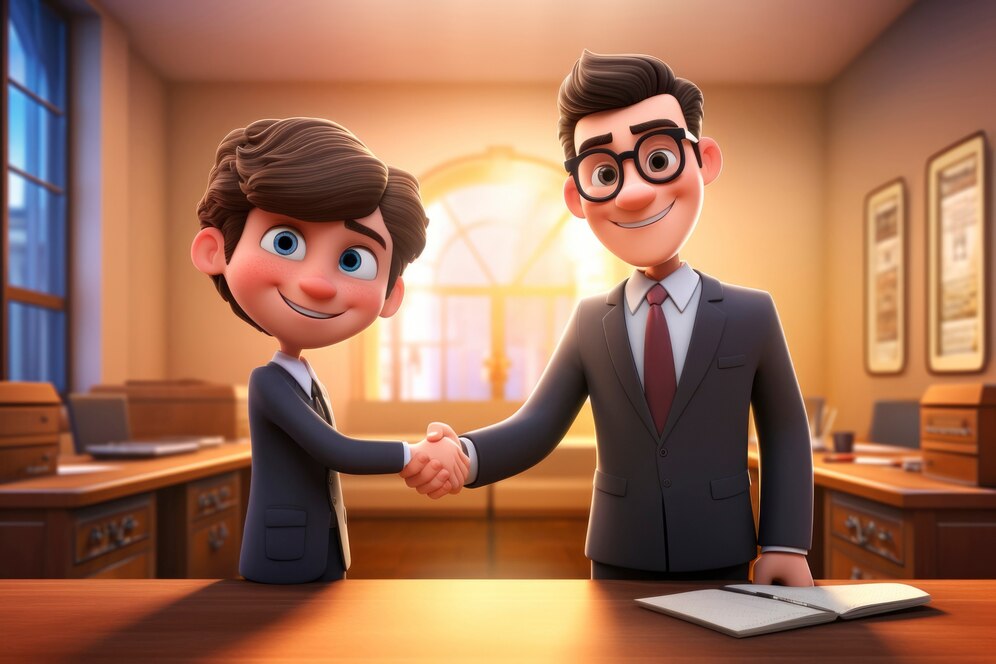
Motorcycle Insurance
Hassle-free motorcycle insurance.

Boat & Yacht
For All the Boating Adventures Ahead

RV Insurance
Security & comfort with RV insurance
California licensed agent
Motorcycle Insurance Coverages
Collision
Comprehensive
Bodily injury
Replacement cost
Rental reimbursement
Roadside assistance
Optional/special equipment coverage


speak with a licensed agent
Boat & Yacht Insurance
Get basic boat insurance coverage with protection for which other carriers may require additional premiums such as mechanical breakdown, uninsured boater, personal property, medical payments, commercial towing reimbursement, fuel spills and dinghy coverage.
speak with a licensed agent
The Journey Starts Here.
When you hit the road, feel confident that you, your loved ones and your pockets are properly protected. Let us worry about the risks of the road, while you enjoy the freedom of the ride.

‒South Pointe Insurance Agency
Learn Motorcycle/RV/Boat Insurance
How Much Does Motorcycle Insurance Cost?
Your cost can vary depending on several factors, including whether you are a new or experienced rider. Other considerations may include where you live, your riding history, the type of coverage you want and what discounts you’re eligible to receive.
How Much Is Boat Insurance?
Boat insurance costs will vary based on the state where you use your boat and the coverage options you select. For instance, agreed value policies will generally cost more than actual cash value policies. If keeping costs down is a priority, choosing a higher deductible can reduce your policy premium. Depending upon the state where the boat is used, policies can be purchased at a very reasonable price.
Why Do I Need Boat Insurance?
You need boat insurance for many reasons. Boat insurance covers loss or damage to your boat and helps protect you financially for injuries or damage caused by covered mishaps. In addition, liability coverage can help protect you if you cause injury to others or their property while using your boat. Medical payments coverage provides reimbursement for injuries to you and your guests. Boat insurance even covers on-water towing.
Is a Boat Covered Under Homeowners Insurance?
Carrying boat or yacht insurance is a smart decision. Contrary to popular belief, your vessel is not automatically covered under your homeowners policy. If you cause an accident, or get into one with an uninsured vessel, you may be held responsible to cover related expenses, such as repairs, property damage, medical bills and more. Without the proper coverage, your financial well-being could be at risk.
Working with an insurance representative to create a marine insurance policy that helps fit your individual needs and budget can help protect you, your loved ones and your assets in the event there is a boating accident.
What Does Boat Insurance Cover?
Boat insurance coverage options depend on the state where your boat is used, your insurance company and the coverage you choose. Standard boat insurance coverage options typically include:
Physical damage: Collisions with another boat or submerged object.
Liability: Bodily injury or damage to the property of others.
Personal property: Including, but not limited to, fishing equipment, clothing and boating-related equipment such as life vests.
Towing and assistance: Reimbursement for transportation of your boat to a repair facility when it’s inoperable, and for gas delivery and roadside assistance.
To get the most complete protection for your individual needs, discuss available boat insurance coverage options with your insurance representative.
Qualifying Bikes and Vehicles
There are a variety of bikes that qualify for motorcycle coverage with Southpointe These include motorcycles from manufacturers such as Harley-Davidson, Honda and Indian, as well as models ranging from cruisers to touring to sport bikes and custom bikes. Coverage is also available for two-wheeled rides like scooters and mopeds and off-road vehicles such as dirt bikes, ATVs, UTVs and snowmobiles.
What Should I Consider When Purchasing Boat Insurance?
Before you purchase a boat policy, it is a good idea to talk to an insurance representative who can help you determine your insurance needs and explain your coverage options. Things to consider and discuss with your agent include:
What are the basic coverages, if any, required by your state or by your lender (if vessel is financed)? Will you be able to afford to pay your deductible and expenses above your policy limits in the event of a loss? How much would it cost to replace or repair your vessel, its fixtures and electronic equipment in the event of a loss? Do you frequently take people out on your boat? Do you have special features on your boat that might need extra protection? Where do you store your boat when it’s not in use? How do you transport your boat? Where do you plan to use your boat? Do you qualify for any discounts on your premium? Once you purchase a boat insurance policy, it is important to review your coverage needs with your insurance representative on an annual basis, or whenever there is a major change in the status of your boat or its use (e.g., you renovate your boat or change its storage location), to ensure your policy remains adequate for your needs and budget.
How Does the State Where I Use or Store My Boat Affect My Policy or Premium?
Many factors affect your cost for boat insurance – among them are the state in which you store and dock your boat, as well as the “navigation territory,” or the waters in which you use your boat. If you store or dock your boat in an area that is more prone to catastrophic weather events, your policy premium may be higher. You may also have a windstorm deductible. Certain states or marinas may also require you to carry specific coverages and limits, which could affect your premium. Where you use your boat matters, too. For instance, boats used inland typically have a lower rate than boats used on coastal waters.
Do I Need to Insure My Boat While It’s in Storage or in the Off-Season When I Am Not Using It?
A boat is a major investment, and one that should be protected year-round. Fire, theft, weather and natural disasters can damage your boat anytime, anywhere. Without adequate coverage, your boat remains exposed to these threats all year long. Your insurance representative can help you determine which boat policy options best fit your needs and budget.
Will My Policy Automatically Renew, or Do I Have to Reapply for Coverage?
Most boat policies renew each year as long as you continue to meet underwriting requirements. We will notify you about any policy or premium changes in advance.
It is important to review your coverage needs with your insurance representative on an annual basis, or whenever there is a major change in the status of your boat or the personal belongings you keep on it. This will help ensure that your boat policy meets your needs and budget.
Boat Coverage & Limits
Physical damage coverage provides protection if your boat collides with another vessel or submerged object, such as a log or a rock. It is included in most boat and other marine policies. Discuss your physical damage coverage needs with your insurance representative. Consider what it would cost to repair or replace your vessel when choosing your deductibles and policy limits. If you finance your vessel, your lender may require specific coverage options and limits, too. Remember, you will be responsible to cover your deductible, as well any related costs above this limit.
Comprehensive Coverage
Pays for damage to your car caused by reason other than collision, such as fire, theft, vandalism, windstorm, flood, et cetera.
Uninsured Motorist Coverage (UMC)
Provides coverage for a policyholder involved in a collision with a driver who does not have liability insurance or who does not have sufficient liability limits to pay for damages. UMC comes in two parts: uninsured motorist bodily injury (UMBI) and uninsured motorist property damage (UMPD). UMBI coverage pays for injuries to you or any person in your car when there is a collision with an uninsured driver. UMPD coverage pays for the property damage to your car when there is a collision with an identified uninsured driver. UMC must be offered when you purchase liability coverage for your auto. If you decline UMC, you must sign a declination waiver.
Medical Payments Coverage
Medical Payments Coverage – Covers the medical costs (up to the specified limit) resulting from an auto accident for you, your family, or others in your car. This coverage pays regardless of fault.
Rental Reimbursement Coverage
This coverage pays your expenses to rent an auto if you have a loss covered under Comprehensive or Collision benefits. Coverage is sold based on a daily amount of expense subject to a maximum limit.
Collision
Pays for damage to your car caused by physical contact with another vehicle or with another object, such as a tree, boulder, guardrail, structure, or person.
Compare Policies
Auto policies can vary a lot . Discuss your insurance needs
openly with your agent, broker, or insurance company.
They can help you, but it is your responsibility to choose
the insurance that is best for you. You should always get
several quotes. A quote is an estimate of your premium cost.
Compare quotes before you buy a policy.
What Is Boat Towing and Assistance Coverage, and Do I Need It? If So, How Much?
Towing and assistance coverage generally reimburses the cost to transport your boat to a repair facility in the event it is inoperable due to a covered loss, and can also cover gas delivery (but not the gas itself) and “boatside” assistance if you are stranded. It is included in most boat and other marine policies. Discuss your towing and assistance coverage needs and reimbursement levels with your insurance representative to ensure you have adequate protection.
Does My Policy Cover the Items I Store on My Boat or Just the Vessel?
In most cases, both. Boat policies typically include the coverage limits you select for damage to auxiliary equipment and personal property stored and used on your boat, as well as to the vessel itself.
What Are Boat Policy Deductibles? How Do They Work?
A deductible is the amount of money you must pay out of your own pocket before your boat insurance policy kicks in.
Here’s one example of how deductibles work: Let’s say your boat collides with a submerged rock, you have a policy limit of up to $10,000 and your deductible is $1,000. If the cost to repair your boat is $500, you will pay the entire $500 since it is less than your deductible. If the cost to repair your boat is $8,000, you will pay your deductible of $1,000 and your insurer will pay the remaining $7,000.
To keep monthly premiums low, boat owners and operators can opt for higher deductibles. But if you can’t pay your deductible or accident-related expenses above and beyond your policy limits, you may find yourself in financial crisis. Choose wisely. Consider your risk tolerance and financial circumstances when deciding the level of protection that’s right for you and your family – then work with your insurance representative to create a policy that balances your individual needs with a premium and deductible you can afford.
Evidence of financial responsibility must be carried at all times in the vehicle.
Most Californians maintain financial responsibility by purchasing automobile liability insurance from an insurance company authorized to do business in California.
Additional Kinds of Coverage
Towing and road service.
- Rental reimbursement pays for car rental when your own
car is being repaired after a covered accident. - You can choose to buy these coverages. They are not
required.

Let us help.
Achieve all your goals in one place














